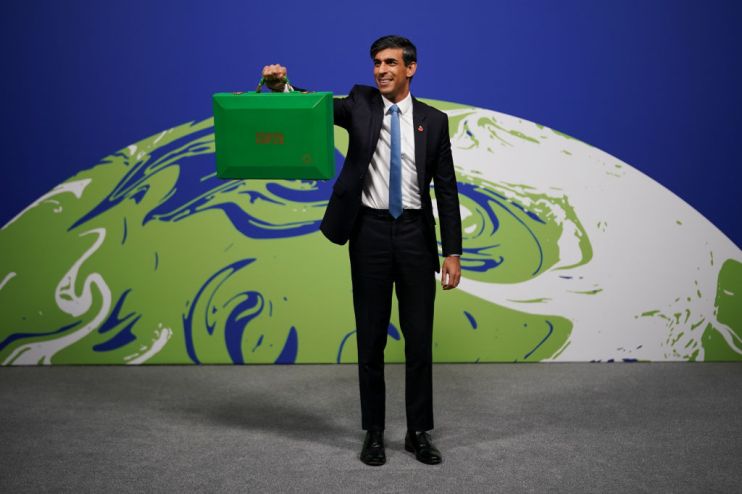Going green: We can’t match the big bucks from the US or China, but we can outsmart them

Forget the politics, the government must double down on green investments now – or else the consequences will catch up with us, writes CBI director general Rain Newton-Smith
Conflict always gets more attention than unity. But the UK is lucky to have consensus on one thing at least: business is united in backing our transition to a cleaner, greener economy by 2050. I saw it clearly three years ago when the UK hosted the G7 in Cornwall and COP26 in Glasgow.
I and the CBI team had the privilege of hosting all the B7 business organisations – and it was the UK that led the charge for high ambition on climate. Now COP26 is widely seen as the first COP summit to really galvanise the private sector. That’s crucial, because the UK Climate Change Committee (CCC) estimates reaching net zero by 2050 will take raising green investment from £10bn per year in 2020 to £50bn-£60bn by 2030 – and the bulk of that will come from business.
That may sound like a challenge, but British business understands it’s a huge opportunity too. With our unique blend of globally renowned services and advanced manufacturing capacity, not to mention our geography (our naturally windy coastlines, for example, have enabled us to develop all five of the world’s biggest offshore wind farms) – the UK should be, and is, a world leader in green economic growth.
Last year, while UK growth languished at 0.1 per cent, our net zero sector grew by nine per cent. CBI Economics research with the Energy and Climate Intelligence Unit (ECIU) shows these businesses directly support £74bn in gross value added (GVA), or four per cent of the economy – and attracted £20bn of investment in 2022-2023. And we’ve shown leadership on the world stage, from being the first country to establish independent carbon budgets, to the first major economy to write the 2050 net zero target into law – all backed by a political and business consensus.
With an election looming, however, it seems net zero is now becoming a political dividing line. And with both parties appearing to row back on green commitments in recent weeks, firms desperate to invest in the UK’s green economy could be forgiven for asking: what message are we sending internationally about our ambition for the UK economy?
Recently, the net zero debate has been boiled down to one thing: public spending. And while investors do respond to size of investment, what really makes them take notice is the size of the opportunity and our ability to deliver it. In the past few weeks, I’ve been inspired by firms investing in decarbonising our economy through everything from offshore wind and electric HGVs to hydrogen for shipping. So I’m still hugely positive about our potential.
But making the most of this needs a shift in mindset. Here’s how the next government – whoever they are – can deliver it.
First, we must shore up investor confidence. Fortunately, there’s an opportunity in the Spring Budget. There, top priority is to follow through on proposals to boost grid infrastructure and reduce planning delays. We can’t electrify the country with our current grid capacity, and time and again, firms say their net zero ambitions are frustrated by long planning delays.
Second, we need parties to get behind a ‘green calling card’ for the UK that helps recapture lost momentum across global markets. With other countries luring investors away with sizeable incentives, CBI research shows we’re on course to lose £4.3bn in economic value by 2030 in key green growth markets like electric vehicles and hydrogen electrolysers. Now, the UK may not be able to match the big bucks from the US, EU and China, but we can try to outsmart them. And that includes being canny about the signals we’re sending.
Third, we must give the private sector clarity on the long-term mix of catalytic public funding and market mechanisms to unlock investment. A net zero investment plan would answer that need and encourage firms who see the commercial opportunities and want to be part of the solution.
And we know this can work: just look at the success of the contracts for difference model in developing catalytic investment. Let’s apply that to areas like sustainable aviation fuels and hydrogen to decarbonise heavy industry. Let’s use the social housing sector as the testbed for low carbon heating and ramping up initiatives to insulate homes and commercial buildings.
To me, it’s a no brainer. If the choice is doubling down on investment now, or higher costs and lost opportunities in future, I know which path I’d choose. One with better outcomes for our planet, our society and our quality of life.
So, let’s fix the cracks starting to show in our consensus on sustainability, hold our political leaders to account on their net zero commitments and encourage them to think of this as an opportunity to show lasting leadership.
